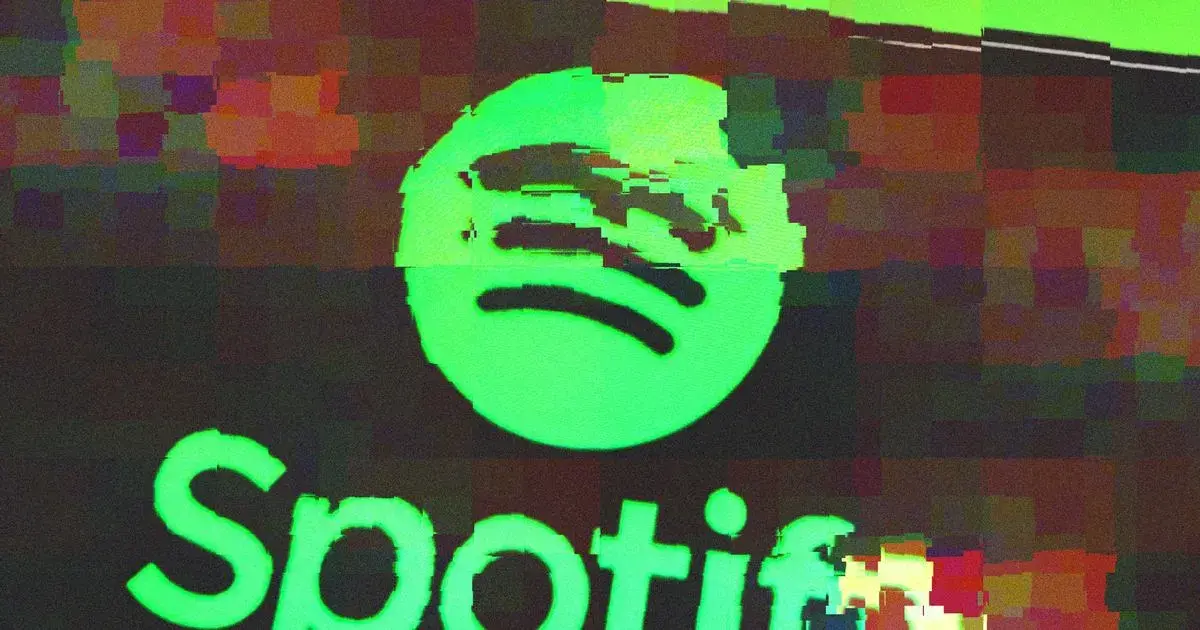Spotify’s success is heavily qualified, though. It may be the Netflix of music, but it’s never posted a profit; in 2022, with nearly a half-billion users around the world, around 200 million of whom pay for the service, it lost 430 million euros (the company is based in Sweden).
How does one get to repeatedly lose hundreds of millions of dollars on and on and somehow endure? Some stockmarket shit?
Another thing: let’s not forget that when music streaming showed up, the music industry was already struggling. The CD era was over; everybody and their mom were sailing the high seas on P2P networks.
Companies with lots of investors can afford to operate at a loss. Generally, once a company has a significant market share and has flushed out enough of its competitors, they can charge higher prices later for whatever service they provide for a significant profit. That is the theory, anyway.
I know that many of the schemes from the above scenario are usually illegal these days, but the above example is the gist of it. Walmart’s attempted entry into Germany is a good example of how to fail hard at taking over a specific market: https://ecomclips.com/blog/why-walmart-failed-in-europe-what-went-wrong-in-germany/
Also, companies can just flat-out lie for new investment money. They can manipulate projections or inflate company value to offload shares to a new sucker. You can have CEOs that just blabber off about bullshit or sell services that never really materialize. (Elon and his self-driving car promises or the now concluded drama about Theranos as examples.)
In the end, a company can succeed or it fails hard. It doesn’t really matter to the executives since they still get paid and investors will take the loss. (In some of the worst cases, the government has to prop up the company to keep it from collapsing, so taxpayers take the loss.) If the company fails gracefully, hopefully they will have a collection of resources to sell off to get some of the money back.
It is how Netflix operated in the streaming market.
Operate at a loss but the growing user base is enough to please and encourage investors. Once enough people are using your service, hike prices.
Finanical gain was never the purpose of Spotify. What spotify provides is the closest channel we know to monitor human emotions. The ability to corelate this data with all the other data gathered from social networks and search engine is well worth the loss.
What is the music industries proposed solution?
I’m not paying you a dollar for a song or $10 for a complete CD. Especially if it is the way it is with movies where you don’t really own it, just a license to play it.
I can’t think of a way in which I would pay for music outside of a Spotify like model. Even at that, I’m on my sisters family plan. If I was not, I wouldn’t subscribe.
Maybe I’m just not the target market, maybe I’m cheap. Maybe I’m just not that into music.
But look at the value. A CD is like 90 minutes long and costs $10-20. There are great computer games out there in that price range that also have a sound track. If I have a limited amount of money to spend, which I do, then I’m going to pay for stuff that maximizes my entertainment.
The only time I’d buy stuff like that is if I knew most, if not all that money is going to the band. At least since a lot of the bands I listen to are smaller.
Yes, this exactly. Im fine with paying $1 a song if I knew majority of the money was going to the artist and not to various greedy media conglomerates.
Is that even possible?
I think there are a few bands they self produce. Fortunately one of my favorite does. At least I think they do. Radiohead.
Lotsa smaller ones, I know king gizzard, red vox, and Frankie and the witch fingers (my favorite bands right now) all have websites you can buy flacs from.
Especially if it is the way it is with movies where you don’t really own it, just a license to play it.
it’s been 15 years since DRM vanished from online music stores, so i don’t understand why people still keep bringing this up like it’s a thing.
What is an online music store? I only know apple and googles.
never heard of itunes? bandcamp? amazon mp3?
these stores have been around for a very long time. newer stores like qobuz specialize in lossless music.
I think the modality of spotify is ok, but the model could be very different. In exemple, imagine if you payed 10$ month, but instead of those being distributed across all of spotify statistically, they where divided and distrubuted to the author YOU actually listened to, on a monthly basis.
Maybe one month you only listened to 10 songs, so 1$ for each song author that month.
Of course, there should be a cut for the platform from that monthly fee, after all they have maintenance and administrative costs. And perhaps it should also take into account how much of a song you listened to, down to the second.
This is not a new model, but it is not an interesting one for venture capitalist funds, because it is too egalitarian. It is up to us to create it.
“To have a fair music market, there needs to be a fair market”.
LiveNation merger when
They already give first dibs to people with more streams, I would imagine they worked out some sort of deal on that one.
I like how this kind of article just don’t even try to talk about other streaming and download platform. It’s really nice also to not talk about the ecological cost of music streaming.
Alternatives are unknown, just keep it like that!
Ignorant here, can you talk about the alternatives a bit?
One thing, i think there is a wider debat that needs to happen about what is the actual point of gaining money with music, what is it, what it means, in what conditions, etc. Taking the time to properly explain what the industry want from a music creator, etc.
For alternative streaming/DL you have archive.org, funkwhale, dogmazic.net, even jamendo is an alternative. Peertube could be a streaming alternative as well












